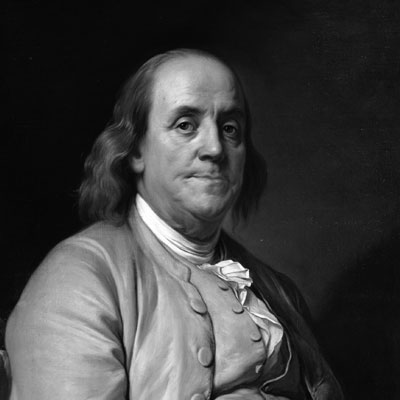 (1706-1790)
(1706-1790)
U.S. Chess
Hall of Fame
Inducted 1999
Benjamin Franklin, born in Boston and raised in Philadelphia, is a famous and beloved American founding father, scientist, author, and statesman. He was also a capable chess player who wrote of competing as early as 1733. During his time as ambassador to France in the 1770s and 1780s, he frequented various Parisian locales looking for opportunities to hone his skills. These settings included the Café de la Regence, at the time a meeting place of some of the best players in the world, indicating that Franklin possessed above-average skills. During his time in France, he also played against the famous “Mechanical Turk” automaton, though the outcome of the game is unknown.
In chess, he saw a mirror of life and preached its virtues in his treatise “The Morals of Chess.” Composed in 1779, the article was first published in London in that same year and then reproduced in Philadelphia’s Columbian Magazine in 1786. The maxims in “Morals” were widely quoted at home and abroad, even becoming in 1791 the first chess-related book to ever appear in Russia. Specifically, Franklin argued that chess “strengthened … several very valuable qualities of the mind,” specifically foresight, circumspection, caution, and perseverance. One of the continent’s first and most famous chess players, advocates, and writers, Franklin was inducted into the U.S. Chess Hall of Fame in 1999.



